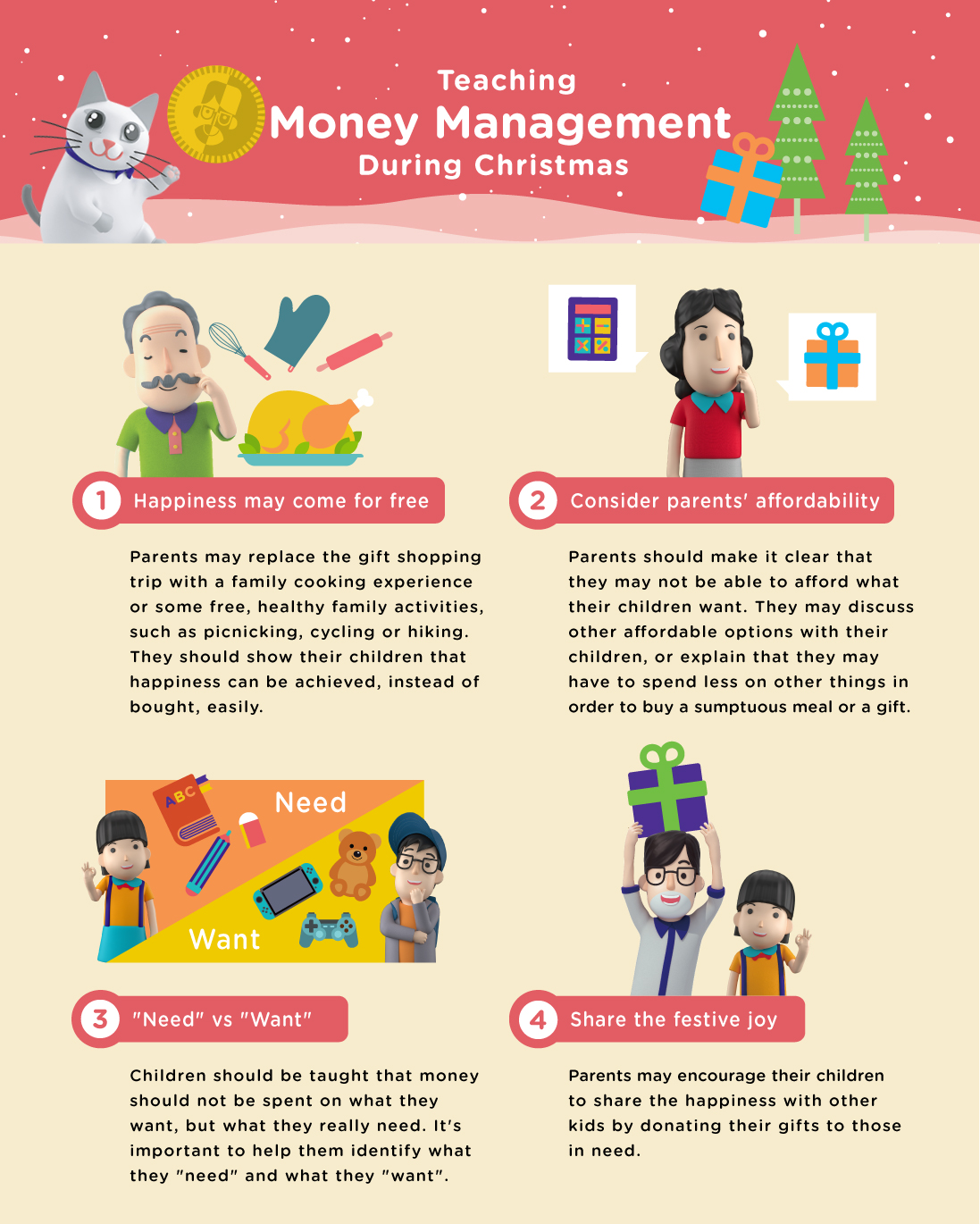Money lessons at Christmas time

The long-awaited Christmas is just around the corner. Apart from the long holiday to be spent with parents, children also look forward to the gifts, games and feasts that come with the festival.
Parents should seize this opportunity to teach their children some basic money management concepts. They should realize that the key to a wonderful Christmas does not lie in the gifts or gourmet dinners, but in the happy time spent with family and friends.
1. Happiness may come for free
Parents may replace the gift shopping trip with a family cooking experience or some free, healthy family activities, such as picnicking, cycling or hiking. They should show their children that happiness can be achieved, instead of bought, easily.
2. Consider parents' affordability
If parents treat their children to a dinner or gift, parents should make it clear that they may not be able to afford what they want. Parents may discuss other affordable options with their children, or explain that they may have to reduce spending on other items to keep the family’s budget in order to buy a sumptuous meal or a gift.
3. "Need" vs "Want"
Children may want something that other kids have, or think that toys are more important than daily necessities. When picking a gift for them, it's important to help them identify what they "need" and what they "want". Parents should ask them to consider if they already have similar toys at home or if they need something more practical, like stationery. They should be taught that money should not be spent on what they want, but what they really need.
4. Share the festive joy
Parents may remind their children that some children may not have the chance to celebrate Christmas as they do. But they can share the happiness with other kids by donating their gifts to those in need.
Cultivating digital financial literacy
With digital advancement and growing popularity of smartphones, children and teenagers are exposed to the internet at a young age and are able to find information or shop online. In order to ensure that they use the internet wisely and stay away from scams, parents should help raise their digital financial literacy and teach them about cybersecurity from early on.
Children and teenagers should be taught that there are many scammers in the online world, and that they should handle money transactions and personal information carefully to protect themselves from scams, especially their ID card numbers and bank account information.
Video: Mindful of cybersecurity
Updated on 27 November 2025





